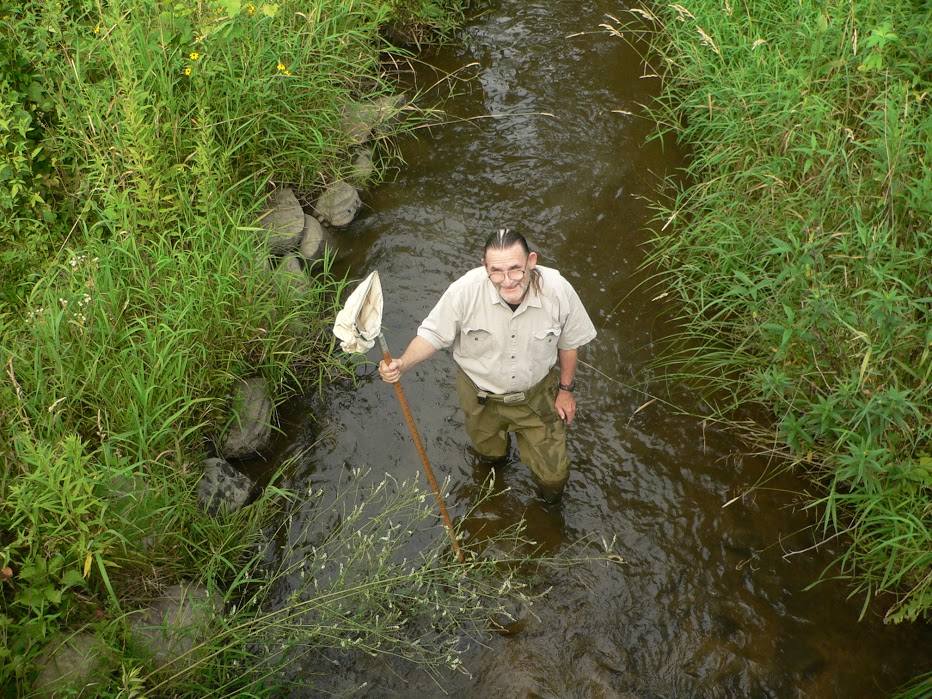
The best way to implement that vision and to defend our waterways is to empower committed local activists with accurate information and train them in water quality monitoring techniques and grassroots advocacy. Standing knee-deep in the local waters they love is a powerful position from which to advocate for the strongest protections and proactive changes. That's what we do.
Here's how our Illinois Water Sentinels team does it:
Training Volunteers
The Water Sentinels program recruits and trains activists to test and assess their local waterways. We educate them with written materials, hold trainings, help them to acquire monitoring equipment and laboratory analysis resources, and teach them to compile inventories and evidence.
Water Monitoring
Sierra Club's Water Sentinels volunteers are regularly testing local rivers, lakes, and streams in their communities across the state for pollution. When we find problems, we use the data we collect to call attention to them, and to devise solutions. When we find good water quality, we know we've found a resource worth protecting, and we work with local communities to ensure that clean water continues for the future.
Advocating for Clean and Healthy Waterways
Water Sentinels are equipped with the training and experience to be strong advocates to protect Illinois' waters. These teams stand up for clean water across the state by sending letters and comments to state regulatory agencies and legislators, attending public hearings on water pollution permits and advocatinf for strict enforcement of clean water regulations. We encourage individuals and families who have been directly affected by water pollution, and anyone who cares about clean water, to become spokespeople for our watershed communities.
What our Chapter's local Groups are doing:
The Valley of the Fox Group Water Sentinels host river clean-ups and advocate for the continued clean-up and protection of the Fox River. Reducing nutrient pollution (phosphates and nitrates) and excess salts are two of the team's main goals, as well as removing dams that no longer serve their intended purpose to allow for a free-flowing river and reduce algae growth in shallow pools. Contact Linda Cole to learn more or get involved and learn more about their "Restore Our Fox River" campaign here.
Our River Prairie Group routinely checks the levels of four chemical compounds (phosphate, nitrate, ammonia, chloride), temperature, pH, and in some areas, dissolved oxygen, radioactive isotopes, and mercury in streams in DuPage County. Contact Bob Barbieri to learn more or get involved.
The Eagle View Group Water Sentinels use four main indicators to determine stream health (dissolved oxygen, nitrate and phosphate concentrations and turbidity estimated as total suspended solids) in the Rock River watershed near the Quad Cities in Rock Island County. Contact Kristen Bergren to learn more or get involved.
The Chicago Water Team works to celebrate and protect Chicago's beaches and rivers through clean-ups, advocacy campaigns, educational events and outings. They also monitor temperature, dissolved oxygen, phosphate and conductivity levels in Chicago rivers. Contact Jeff Shelden to learn more or get involved.
Our Northwest Cook County Water Sentinels monitor local watersheds for phosphorus, pH, conductivity and turbidity. They also conduct public outreach to educate and advocate for clean water and reduced pollution. Contact Pat Nuccio to learn more or get involved.
The Woods and Wetlands Group has two water campaigns, the Squaw Creek Clean Water Alliance and Clean and Healthy Des Plaines River. Through the Squaw Creek Water Alliance, volunteers work with other committed individuals, community organizations and public agencies to identify and mitigate pollution sources (such as excess nutrients) in the 24,000-acre Squaw Creek watershed in northwestern Lake County. Contact Gloria Charland to learn more. The mission of Clean and Healthy Des Plaines River is to restore and protect the Des Plaines River by engaging in public education and advocacy to reduce runoff pollution. Contact Rosemary Heilemann for more information.
Participating in Local Watershed Groups
Local watershed groups play an important role in identifying and addressing the issues unique to their area while working collaboratively with diverse stakeholders to improve the condition of the watershed. Sierra Club staff and volunteers participate in multiple watershed groups throughout Illinois including the North Branch Chicago River Watershed Workgroup (NBWW), the Des Plaines River Watershed Workgroup, and the Fox River Study Group.
How Can YOU Help?
If you are interested in learning more about or joining in our Water Sentinels advocacy or monitoring activities, contact us!
Email Ann Baskerville!